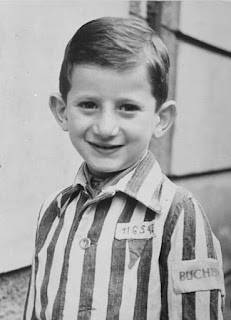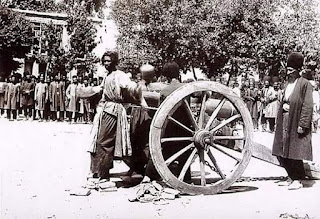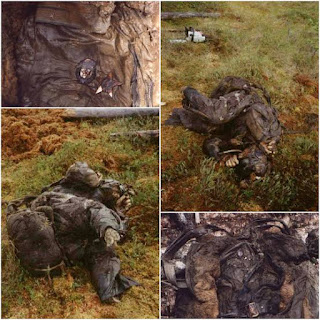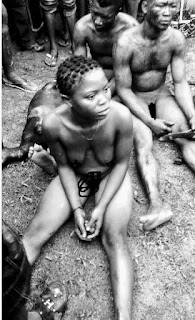Janek Schleifstein was born on March 7, 1941 in the Jewish ghetto of Sandomierz, located in the southeast of occupied Poland–world history and facts
This kid managed not only to survive in the basement of the ghetto and in the barracks of the death camp, but later to testify against his tormentors in court ... He learned the main rule - never cry, otherwise the "bad uncles" will take you away.
In 1997, the Italian director Roberto Benigni made the film "Life is Beautiful" - about the fate of a Jew who hides his 5-year-old son in a Nazi concentration camp.
According to the plot, the prisoner explains to the child: this is a game. SS men should be avoided, you should not whine, complain and ask for food, then he will score points and earn a prize - a real tank. Benigni received three Oscars, becoming famous all over the world.
However, considering his story to be fictional, the director had no idea that such an incident actually took place.
Janek Schleifstein was born on March 7, 1941 in the Jewish ghetto of Sandomierz, located in the southeast of occupied Poland. For the first time, his parents had to hide him when the boy was only a year old: the prisoners of the ghetto were transported to Czestochowa as slaves for the HASAG weapons factory.
On the very first day, the SS took away all the children as "useless for work" - the kids were sent to Auschwitz. Janek's mother managed to take the child to the basement, and there he lived for 18 months in complete darkness: the light appeared only when the parents came down with food and candles.
They taught the boy to be silent - after all, sounds could attract soldiers - and they also brought in a cat to catch mice that could bite Janek.
In September 1943, the factory staff was replaced by Poles, and the Jews were sent to the Buchenwald concentration camp - the one whose gates were decorated with the ominous inscription "Jedem das Seine" - "To each his own." It was then that Israel Schleifstein said to his 2.5-year-old son: “Now we will play an interesting game.
I promise you three sugars tonight. The conditions are - you will not cry, no matter what happens. Sugar was of great value, and the barely able to speak Janek immediately agreed. The father made a large bag with holes for air, put his son inside, covering the top with clothes, and threw the “bag” over his shoulders.
In Buchenwald, the family was separated. Janek's mother was taken to another concentration camp - Bergen-Belsen, and the elderly and children who arrived from other ghettos were shot right there at the train, in front of the prisoners.
The camp commandant, SS Standartenführer Hermann Pister said: "We need workers, not parasites." Israel Schleifstein secretly carried his son to the barracks, where the question arose: what to do next? Two communist Germans helped hide the boy.
The kid was given pieces of bread from a meager camp ration, secretly brought rainwater. One of the prisoners carved a toy out of wood - a tiny horse.
The child always spoke only in whispers and never cried. “It is necessary that the bad uncles do not find you,” the father explained. “Otherwise they will take us to the evil witch.”
... As a result, this wooden toy did a disservice: the horse was discovered during the inspection of the barracks by a guard, a 30-year-old SS Rottenführer. He searched the premises and stumbled upon a hiding place where the baby was hiding.
And then a real miracle happened - the SS man had a son of Janek's age, and he liked the tiny, unsmiling boy. The Rottenführer did not report to the commandant about his find, but left the child in the barracks, calling him the "talisman of Buchenwald." Moreover, he ordered to sew a “childish” camp uniform for him.
From now on, the little prisoner was called to the morning verification, so that he would report at the end: “All the prisoners have been counted!” However, when high-ranking SS officers came to the barracks, the child was again placed in a hiding place: all children in Buchenwald were to be destroyed.
Once (already in February 1945) Janek accidentally left without supervision, went out to play in the yard and caught the eye of the deputy head of the camp.
He became furious, ordering “to move the petty Jew to where he belongs” ... The boy was seized to be taken to the gas chamber, but his father begged for a couple of days to say goodbye to the baby, promising in return to make a beautiful saddle for the SS man (passionate lover of horses) .
And again, a happy coincidence - two days later the Nazi was sent to the Eastern Front. Israel Schleifstein, thanking God for his luck, hid his son in a camp hospital, where the child was hidden until April 11, 1945, when the Buchenwald prisoners rebelled, capturing the SS guards.
A few hours later, units of the US Army's Seventh Airborne Corps entered the camp.
As they say, Janek Schleifstein was "born in a shirt." After all, for a baby, the chance to survive among the SS killers was minimal - it's like surviving in a pack of hungry wolves.
After the war, it turned out that the boy's mother had escaped - she was found in Dachau. Having restored health, in 1948 the whole family left for America, where the family settled in Brooklyn.
Soon Israel and Esther had a second child. Israel Schleifstein died in 1957, his wife in 1997.
This case became known after the Benigni film, when the history of Janek was discovered in the US State Archives. Having given a single interview to journalists, the smallest prisoner of Buchenwald avoided communicating with the press. He has a hard time remembering details.
... 77-year-old Janek (Joseph) Schleifstein still lives in New York. He said that he had been sleeping with the lights on all his life, because he was afraid of the dark: his stay in the cellars of Częstochowa and the dark corners of the barrack had an effect.
In 1947, a 6-year-old concentration camp prisoner became the youngest witness at a trial against the Buchenwald guards, identifying the four SS men who most brutally treated prisoners.
As a result of this process, 22 security officers were sentenced to hanging, 11 of them were executed, and the commandant of Buchenwald, Herman Pister, while awaiting execution, died of a heart attack in a prison cell.


.jpg)

.jpeg)




.jpeg)

Comments
Post a Comment